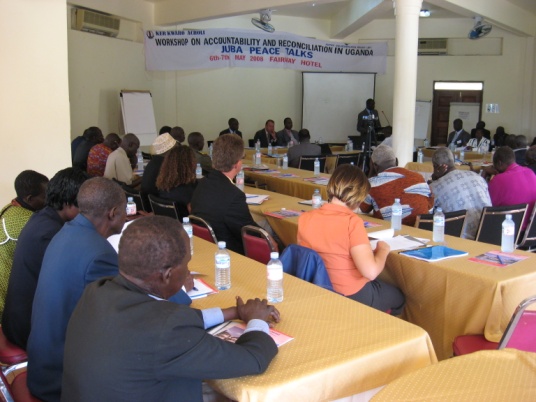“There are more than 13 who fought for peace in the north,” New Vision, 27 October 2010
By Lino Owor Ogora
IN September, the New Vision ran a story about 13 people who had been honoured for their contribution to bringing peace in northern Uganda.
These people are: Dr. Ruhakana Rugunda, Steven Kagoda, Betty Bigombe, Gen. Katumba Wamala, Maj. Gen. Kale Kayihura, Archbishop John Baptist Odama, Bishop Zack Niringiye, Omukama of Bunyoro Solomon Iguru, Angella Katatumba, Richard Ocici, Edward Kigongo, Moses Bamuze and Francisca Akello.
We are not aware of the criteria that was used to select these people, but I would like to say, there were some people who deserved recognition, but were left out.
These include; Bishop Macleod Baker Ochola, the retired Bishop of Kitgum; Sheikh Musa Khelil and Bishop Nelson Onono Onweng.
They also include the founders of the Acholi Religious Leaders’ Peace Initiative. This was one of the first organisations to advocate blanket amnesty in northern Uganda.
Others are cultural leaders like Rwot David Onen Achana, the Emorimor of Teso, the King of the Alur and the Won Nyaci of Lango.
More so, why were the peace negotiators on the LRA side not recognised?
Could Dr. Rugunda have negotiated without the other side?
Where are the other prominent politicians, such as Gulu chairman Nobert Mao, Reagan Okumu and Col. Walter Ochora, who were involved in the peace negotiations.
I, therefore, call upon the national platform for peace building to think more broadly beyond the 13 people, who were recognised.
They also need to make public with the criteria they used to select these ‘achievers’.
It would also be good for the public to be told why such people are being recognised, and what their contribution was.
Finally, there is need for more consultation with the victims of the war in northern Uganda to ensure that the peace ‘achievers’ who get awarded, are also known, and appreciated by the survivors of the war.
The writer is the team leader for research, advocacy and documentation at the Justice and Reconciliation Project in Gulu

